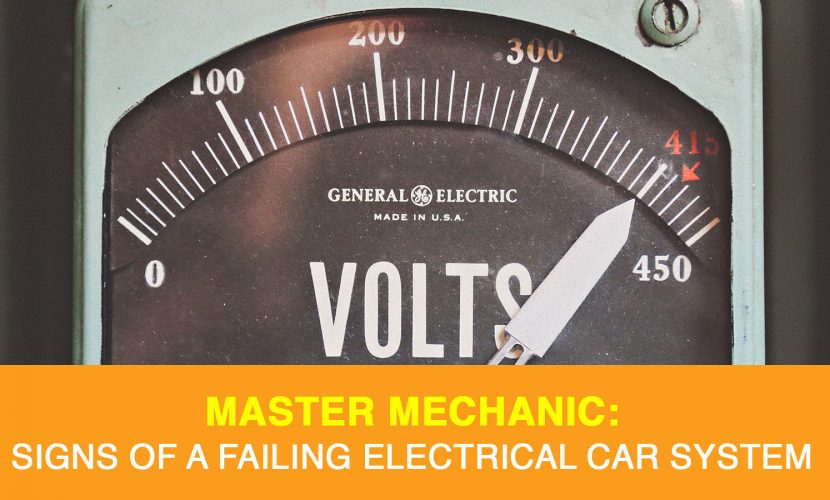
Master Mechanic: Signs Of A Failing Electrical Car System
You don’t have to be a Master Mechanic to recognize that modern cars are highly dependent on the electrical systems that help power them. Your car has many different electrical systems–from the lighting to the steering–and if they start to fail, you’ll likely know something’s wrong.
We caught up with a Master Mechanic to discuss how to recognize when you may have a problem with your vehicle’s electrical system. We recommend that you never try to fix these repairs yourself, and instead, contact your local Master Mechanic.
Your Car Is Not Starting
All vehicle engines require electrical power to start. To achieve this, your battery provides power to create a spark, which ignites the fuel in your engine. When diagnosing an engine, not cranking indicates that you likely have an electrical issue with your car.
If you turn the key and nothing happens, check to see if the cabin lights turn on when the door is ajar. If the lights aren’t working and the car won’t start, you probably have a dead battery on your hands. If the lights do come on, but the car won’t start, then you should probably have your alternator looked at. If you hear a clicking or grinding sound when you try to start the engine, then the issue likely lies with the starter or flywheel ring gear.
Visible Battery Damage or Leaks
If you think you might be having issues with your battery, we don’t recommend replacing it until you check your other electrical systems. On average, car batteries last about five years with normal use. When they do begin to fail, it makes sense that the symptoms emerge in your electrical system.
If you believe a failing battery is the culprit, start by checking all cables for corrosion, and ensure their connected properly. If you notice corrosion, this is an indication that there is a leak, a larger issue, or that your battery is simply on its last legs. You should consider bringing your battery into your Master Mechanic to have it tested.
Dimming Lights
Naturally, your car’s lights are one of the most visible parts of your electrical system. So, it’s usually a good way to indicate when something isn’t right.
When your electrical system isn’t working properly, your lights often appear dimmer than normal. This usually indicates a charging malfunction and low system voltage caused by a dying battery, loose connections, or a faulty alternator belt.
This is not an issue we recommend trying to diagnose yourself. Bring your car into your local Master Mechanic for a full–and safe–electrical inspection.
Blown Fuses
Your car has a fuse box that is meant to prevent any overvoltage or short-circuiting from occurring. In these scenarios, fuses are designed to break the circuits to protect your electrical systems from getting damaged.
From time-to-time, a fuse can blow without causing any concern after it’s replaced. If you have more than one fuse blow in a short period of time, this likely means you have an issue with one of your electrical systems.
Ignoring this issue could cause even more damage to your vehicle. Contact your local Master Mechanic to have the issue diagnosed and repaired.
Beyond what we outlined above, if you ever smell burning plastic or electrical insulation, you should stop driving your car immediately and call for help. This is a sure sign that something is seriously wrong–especially if you’re noticing any of the other symptoms above.
It’s important never take a chance when it comes to electrical issues. This goes for driving and attempting to diagnose or do repairs yourself. At Master Mechanic, we always recommend getting your car to your local shop to avoid further damage and a more substantial cost to repair.
If you suspect you have an electrical issue, or have any questions about your car, don’t hesitate to contact your local Master Mechanic today!

